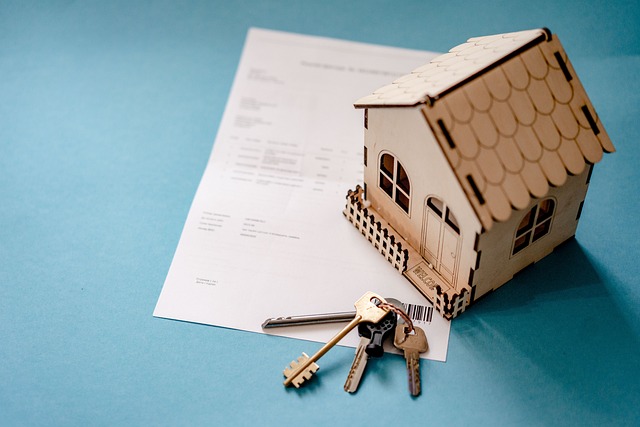As natural water disasters become more frequent and impactful, understanding the scope of your home insurance coverage has never been more critical. Standard homeowners policies typically exclude flood damage, leaving many property owners at risk. This article delves into the necessity of complementing your existing home insurance with a dedicated flood insurance policy to safeguard against such calamities. Explore the essentials of home insurance quotes, property insurance rates, and personal liability coverage within the context of flood events. We will guide you through assessing your property’s flood risk and navigating the options for comprehensive coverage to ensure your assets are protected.
- Understanding Standard Homeowners Insurance and Its Limits: A Closer Look at Flood Exclusions
- The Importance of Evaluating Your Property's Flood Risk: Key Factors to Consider
- Navigating House Insurance Rates and Home Insurance Quotes for Comprehensive Coverage
- The Role of Personal Liability Coverage in Protecting Your Assets During Flood Events
- Home Contents Insurance: What It Entails and Why It's Crucial for Flood Protection
- How to Secure a Separate Flood Insurance Policy: Steps and Considerations for Homeowners
Understanding Standard Homeowners Insurance and Its Limits: A Closer Look at Flood Exclusions

When it comes to safeguarding your home and assets, understanding the scope of standard homeowners insurance is crucial. Typical home insurance coverage includes a range of protections, from personal liability coverage to home contents insurance, against perils such as fire, theft, or vandalism. However, it’s important to recognize that these policies often have limits, particularly when it comes to natural disasters like flooding. Homeowners must be aware that their standard policy may not provide the comprehensive protection they need against water-related damage from rivers, lakes, or heavy rainfall. This gap in coverage can leave properties at significant risk during flood events, which are becoming more frequent and intense due to climate change patterns.
Given the potential for devastating financial loss from such events, securing a separate policy specifically designed for flood insurance is a prudent move. This specialized coverage is tailored to address the unique risks associated with flooding and can be obtained through the National Flood Insurance Program (NFIP) or private insurers. It’s advisable for homeowners to assess their property’s vulnerability to flood risk, which can vary greatly depending on location. By understanding the specifics of their home insurance quotes and how house insurance rates may differ with additional coverage, homeowners can make informed decisions that align with their property’s risk profile and financial situation. Consulting with insurance providers to explore the various options for property insurance will ensure that you have the appropriate level of protection in place, providing both peace of mind and financial security against flood-related incidents.
The Importance of Evaluating Your Property's Flood Risk: Key Factors to Consider

When it comes to home insurance coverage, understanding your property’s flood risk is paramount. Standard policies often exclude flood damage, leaving homeowners exposed to significant financial loss in the event of such an incident. Evaluating your property’s flood risk involves considering several key factors. Firstly, geographical location plays a crucial role; properties in high-risk flood zones are more susceptible to flooding. Historical flood data can provide insights into past events and their impact on the area, which is invaluable for predicting future risks. Climate change and weather patterns are also important considerations; areas experiencing increased precipitation or more frequent storms should be particularly vigilant.
Additionally, understanding the local topography and infrastructure can reveal vulnerabilities. Is your property near water bodies, streams, or in a low-lying area prone to water accumulation? The quality of local drainage systems and flood defenses is another factor that affects your risk level. Homeowners should also assess the resilience of their home; properties built to withstand flooding may have lower insurance rates. It’s wise to review home insurance quotes for additional coverage, including personal liability coverage and home contents insurance, which can offer comprehensive protection against flood damage. By taking these factors into account and consulting with insurance providers, homeowners can make informed decisions about the most suitable and cost-effective property insurance options, ensuring they are prepared should flooding occur.
Navigating House Insurance Rates and Home Insurance Quotes for Comprehensive Coverage

When considering home insurance coverage, it’s crucial to explore various home insurance quotes to find comprehensive protection that suits your needs and budget. House insurance rates can vary significantly based on location, property value, and the specific coverages included in the policy. A robust home insurance policy typically encompasses more than just the structure itself; it extends to personal liability coverage and home contents insurance as well. Personal liability coverage is an essential aspect that offers financial protection should someone be injured on your property and decide to sue you for damages. This coverage can provide a safety net against unforeseen legal costs. On the other hand, home contents insurance ensures that your belongings are covered in the event of damage or theft within or outside your home. It’s important to carefully assess the value of your personal items to ensure that your contents insurance reflects their true replacement cost.
Property insurance and house insurance rates must be tailored to account for the specific risks associated with your location, including factors like flood plains, earthquake zones, or areas prone to wildfires. In regions where flooding is a concern, it’s prudent to look beyond standard policies, as these often exclude flood damage. Obtaining a separate flood insurance policy, backed by the National Flood Insurance Program (NFIP) or equivalent private insurers, can provide the necessary coverage for such events. It’s advisable to consult with insurance providers to understand the nuances of different home insurance quotes and rates, ensuring that your property is adequately protected against a wide array of potential losses. This proactive approach to home insurance ensures that you have the appropriate coverage in place, offering peace of mind and financial security for your most valuable asset.
The Role of Personal Liability Coverage in Protecting Your Assets During Flood Events

When considering the implications of flood events on your home and assets, it’s crucial to understand the role of personal liability coverage within your overall home insurance portfolio. Standard home insurance policies often fall short in fully protecting against the comprehensive damage that flooding can cause. This is where personal liability coverage comes into play. It extends beyond the structural protection offered by property insurance, providing an additional layer of security for homeowners. In the event of a flood, personal liability coverage can cover the costs associated with third-party claims if, for instance, floodwaters from your property inadvertently cause damage to neighboring properties. This aspect of coverage is particularly important given the potential for substantial legal and repair expenses that could arise from such incidents.
Homeowners must also consider the protection of their home contents against flood damage. House insurance rates may vary significantly depending on the level of cover you require for your belongings. A separate flood insurance policy, which can be obtained through home insurance quotes specifically designed for this purpose, ensures that your personal possessions are safeguarded against water damage from flooding. By assessing your home insurance coverage and obtaining tailored home insurance quotes, you can make an informed decision about the level of cover that suits your needs, ensuring both your assets and home contents remain secure against the unpredictable nature of flood events. It’s advisable to review your policy regularly and adjust your coverage as necessary, especially if you live in a high-risk flood area or if there are changes to your property or belongings that could affect the value of your insurance.
Home Contents Insurance: What It Entails and Why It's Crucial for Flood Protection

When considering comprehensive protection for your home against flood damage, it’s essential to understand the role of home contents insurance within your overall insurance strategy. Home contents insurance is specifically designed to cover the personal belongings within your house, including furniture, electronics, and other possessions. Unlike the broader home insurance coverage that primarily focuses on the structure itself, contents insurance steps in to provide financial compensation for the replacement cost of these items if they are lost or damaged due to a flood. Given the unpredictable nature of flooding events, which can stem from heavy rains, storm surges, or even broken water mains, having this additional layer of protection is crucial. It’s prudent to evaluate your home insurance quotes carefully to ensure that your personal belongings are adequately covered.
Moreover, it’s important to review your house insurance rates for contents coverage in the context of your flood risk assessment. Properties located in high-risk flood zones typically have higher insurance rates due to the elevated probability of flooding. However, even if your property is in a low-to-moderate risk area, it’s still advisable to secure this coverage. A separate policy for flood protection can be obtained through the National Flood Insurance Program (NFIP) or private insurers, ensuring that you are not left financially vulnerable in the event of a flood. Additionally, some policies may offer personal liability coverage, which can protect you if someone is injured on your property during a flood-related incident. This aspect of coverage is often overlooked but can be invaluable when dealing with such events. Always ensure that your home contents insurance is up to date and reflects the true value of your belongings to avoid underinsurance in the event of a claim.
How to Secure a Separate Flood Insurance Policy: Steps and Considerations for Homeowners

Homeowners who reside in areas prone to flooding or those wishing to safeguard their properties against unforeseen water damage should seriously consider securing a separate flood insurance policy. This specialized coverage extends beyond the typical home insurance coverage, which often excludes flood-related incidents. To procure this essential protection, start by assessing your property’s risk of flooding using tools provided by the National Flood Insurance Program (NFIP) or equivalent local programs. Once you’ve determined your level of risk, reach out to insurance providers to inquire about home insurance quotes for flood policies. It’s advisable to compare these quotes to find the most affordable house insurance rates that align with your budget and coverage needs.
When evaluating home insurance quotes, it’s crucial to understand what each policy offers. Look into the scope of property insurance for your dwelling, which should match or exceed the replacement cost of your home. Additionally, ensure that contents insurance is included to cover personal belongings within your house. Personal liability coverage can also be a valuable addition, particularly if your property’s flood defenses fail and cause damage to neighboring properties. This aspect of the policy can provide financial security and legal protection in such scenarios. Lastly, consider the terms and conditions carefully, ensuring that you are fully aware of any deductibles or policy limitations before finalizing your choice of flood insurance.
When it comes to securing your home against the unpredictable nature of floods, it’s imperative to expand your home insurance coverage. Standard policies often fall short in this area, leaving many homeowners exposed to significant financial risk. By understanding the specifics of house insurance rates, exploring comprehensive home insurance quotes, and recognizing the value of personal liability coverage within property insurance, you can make informed decisions tailored to your needs. Moreover, home contents insurance further underscores the importance of a well-rounded approach to flood protection. To safeguard your investment and ensure that your belongings are protected, consider acquiring a dedicated flood insurance policy. This proactive measure will not only provide robust financial security but also offer peace of mind, knowing you’re prepared for whatever Mother Nature may bring. Assess your property’s vulnerability to flooding and engage with insurance providers to explore the best options available for your situation.



